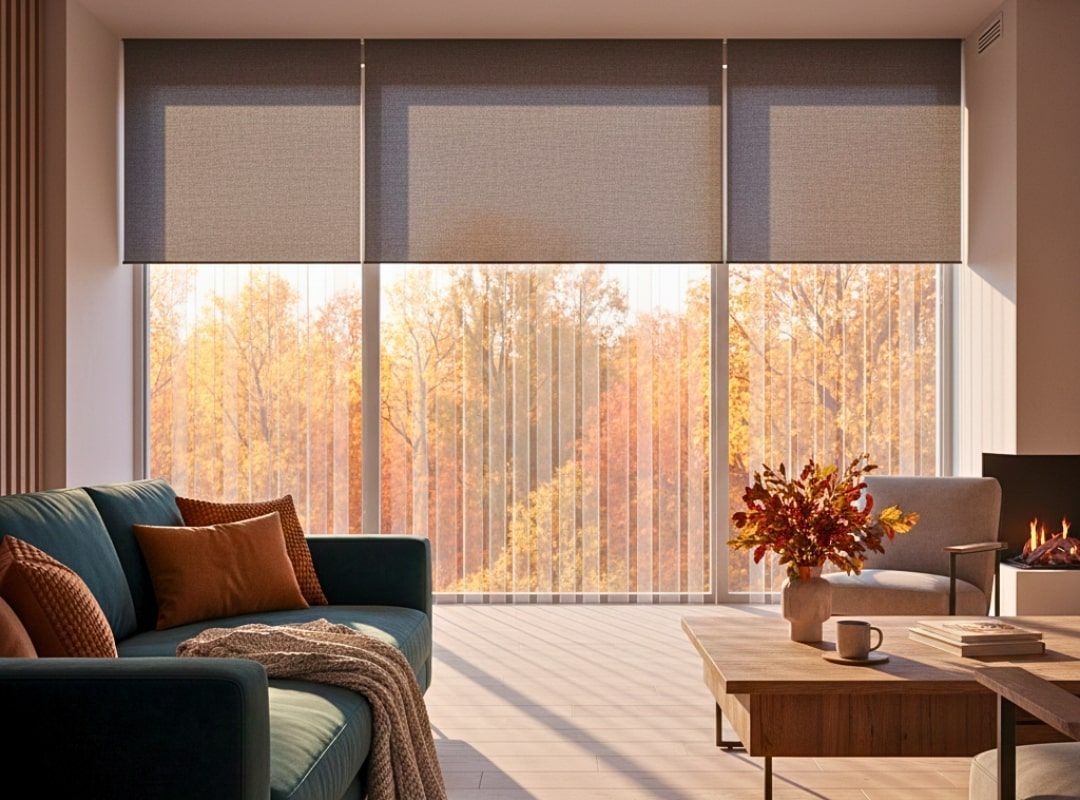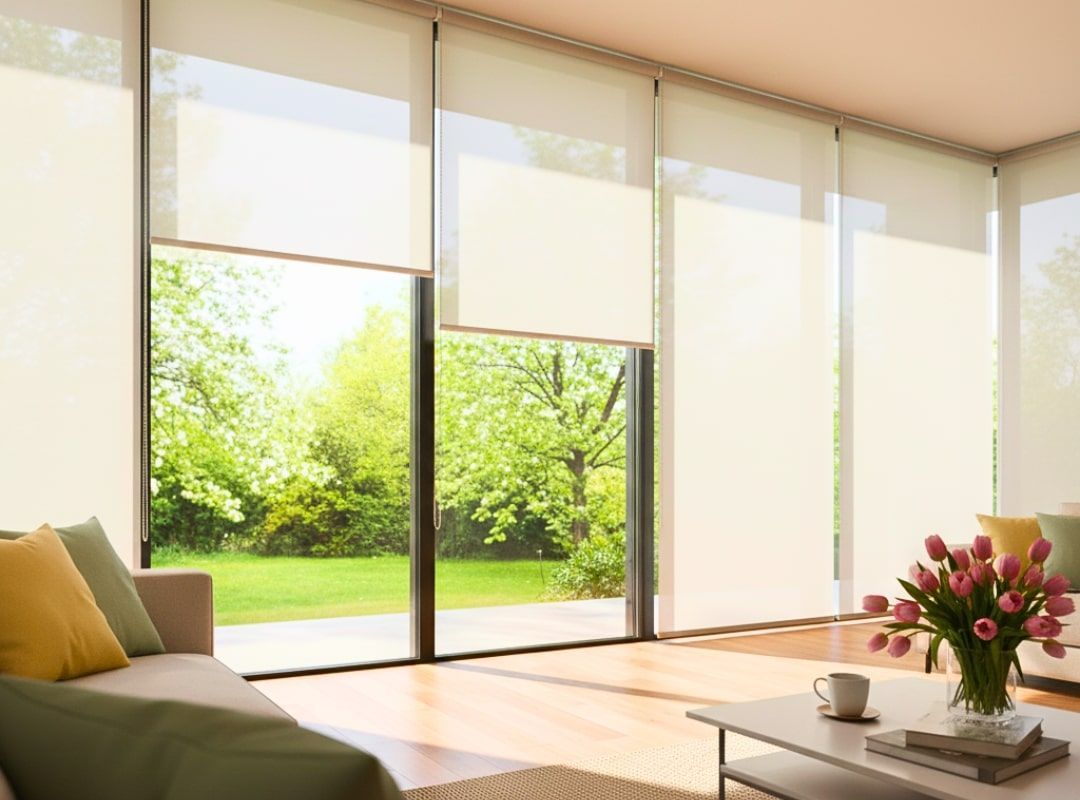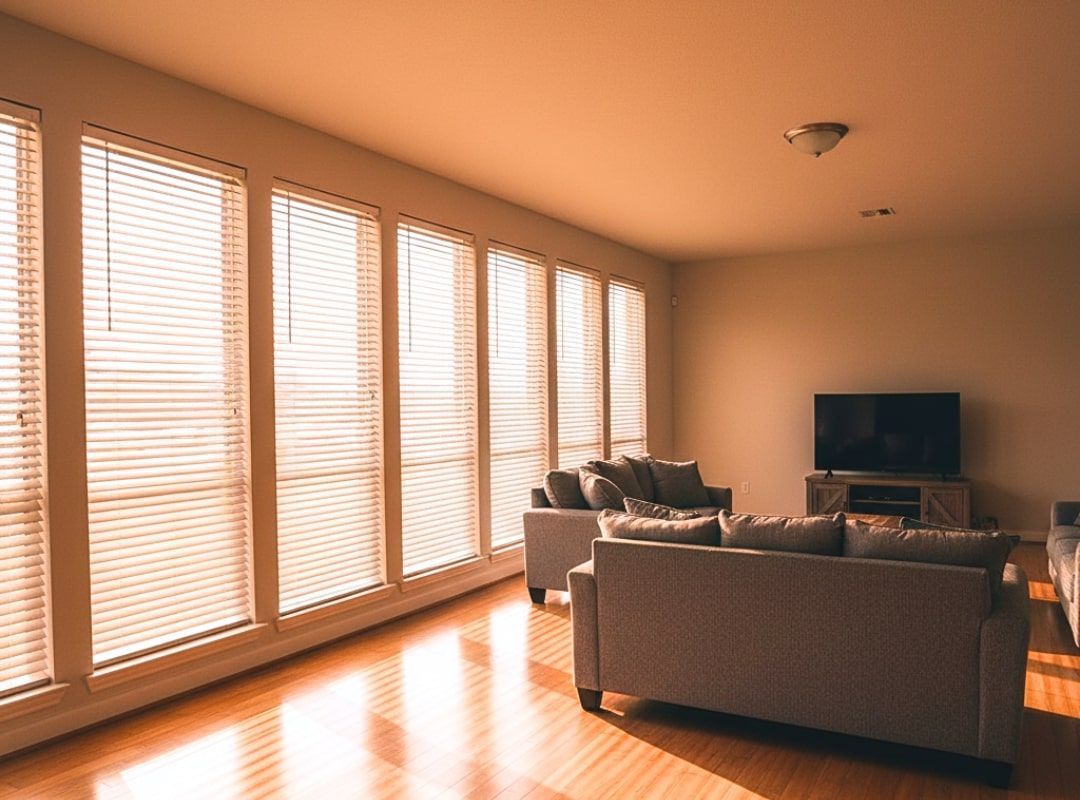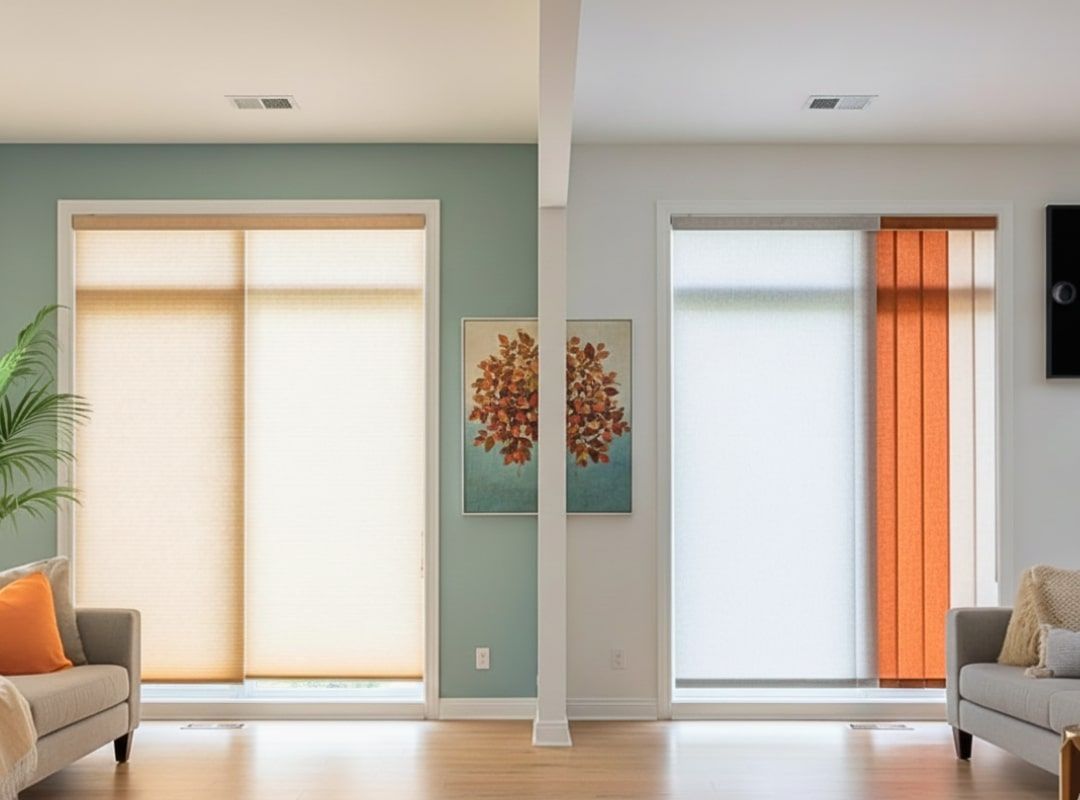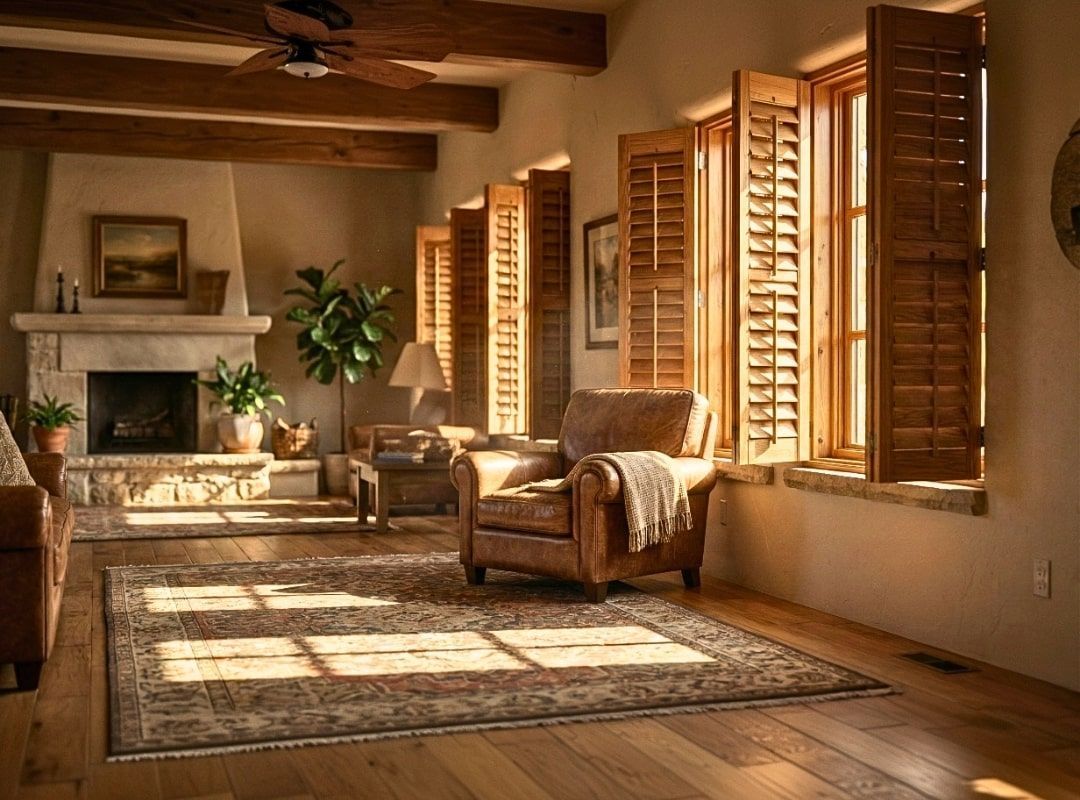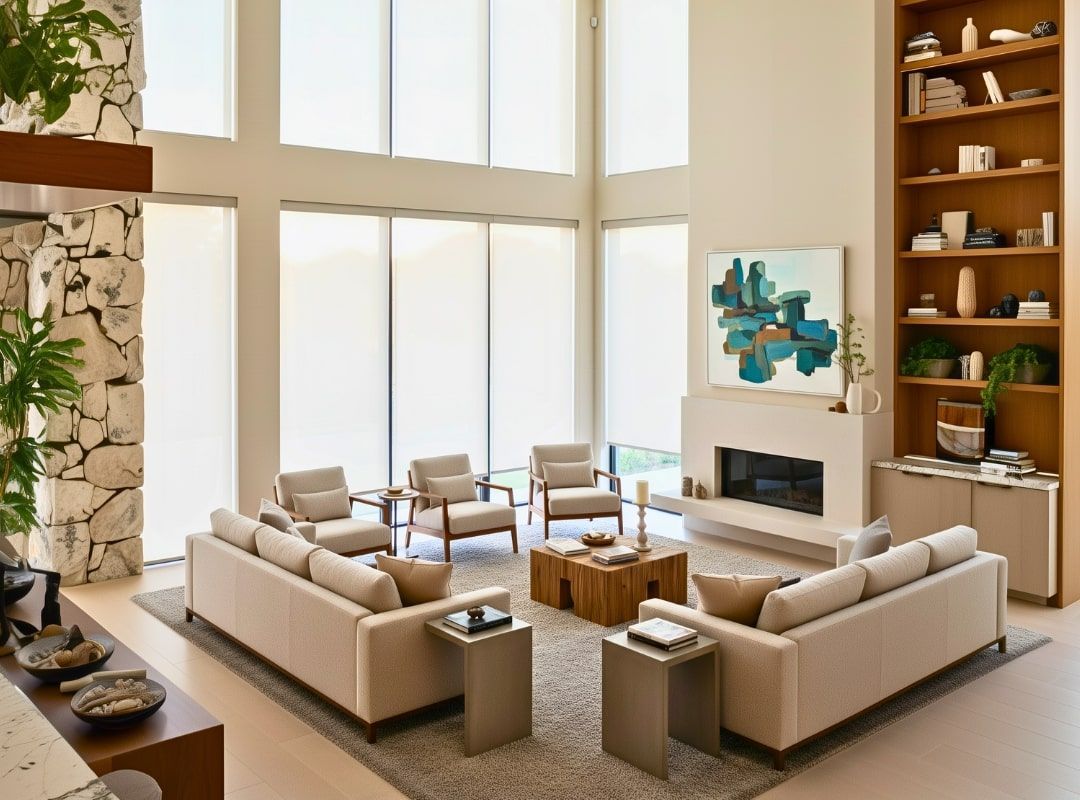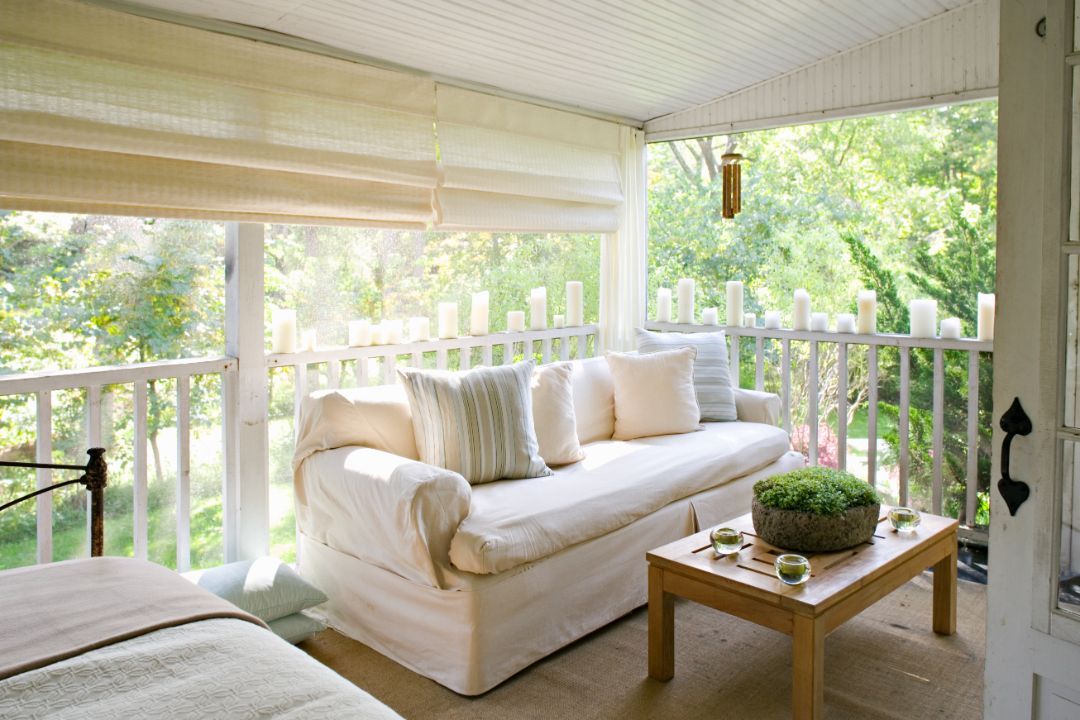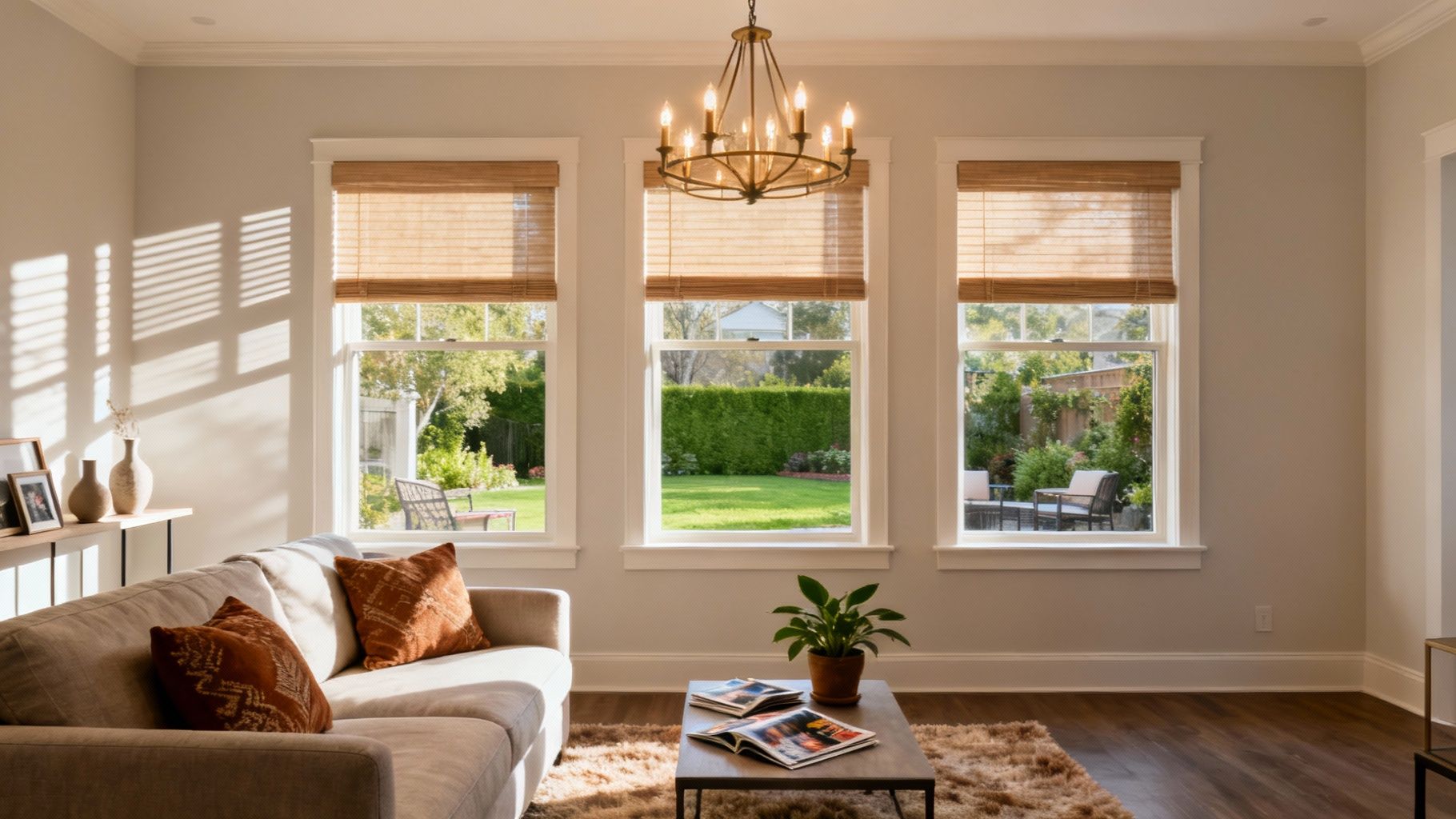How Window Treatments Can Help You Sleep Better at Night
TLDR;
The right
window treatments can help you sleep better by blocking light, reducing noise, and keeping your bedroom temperature comfortable. Blackout curtains, cellular shades, and motorized blinds create the darkness and calm your body needs to stay in tune with your circadian rhythm and fall asleep faster. Love Is Blinds TX offers window treatments designed to turn any bedroom into a sleep sanctuary.
Why Your Bedroom Environment Matters for Sleep
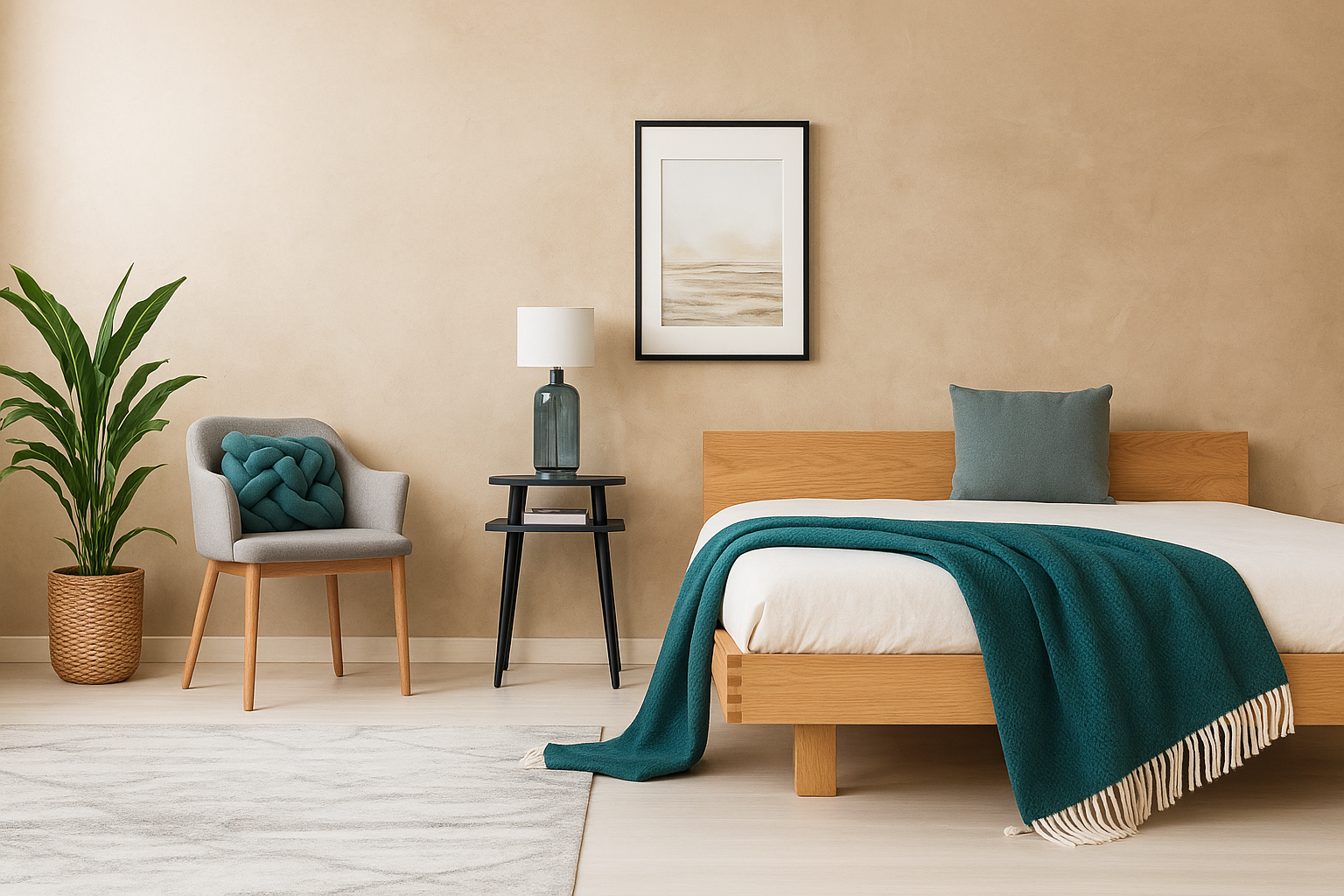
Sleep is more than closing your eyes. Your environment decides how well your body relaxes and resets. Too much light, heat, or noise confuses your circadian rhythm, the internal clock that tells your body when to rest and when to wake.
A healthy sleep space is dark, quiet, and cool. Window treatments play a large role in achieving that balance.
- They block light that interrupts melatonin production
- They reduce noise that keeps your mind alert
- They insulate rooms to maintain a steady temperature
When all three factors work together, your brain receives a clear signal: it’s time to rest.
The Role of Light and Darkness in the Sleep-Wake Cycle
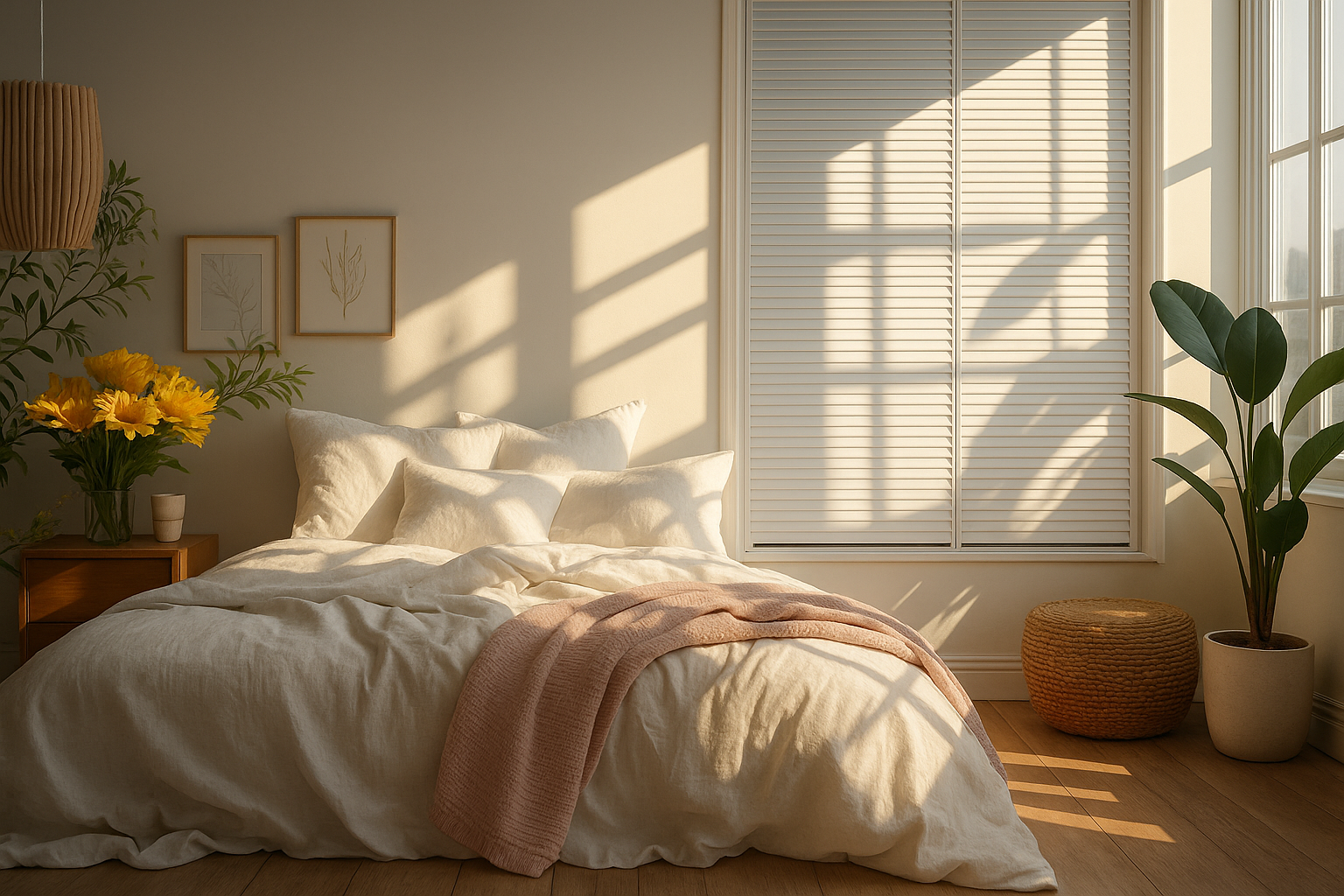
Light is the main signal that controls your circadian rhythm. Even small light leaks can trigger melatonin suppression and keep your brain awake. Streetlights, car headlights, and early morning sun confuse the body’s internal clock.
Ambient light control is key. The darker your room, the easier it is to fall asleep and stay asleep. Blackout shades and room-darkening
blinds are practical solutions for this. By blocking almost all outside light, they give your body the darkness it needs to regulate hormones naturally.
Noise, Temperature, and Other Environmental Factors
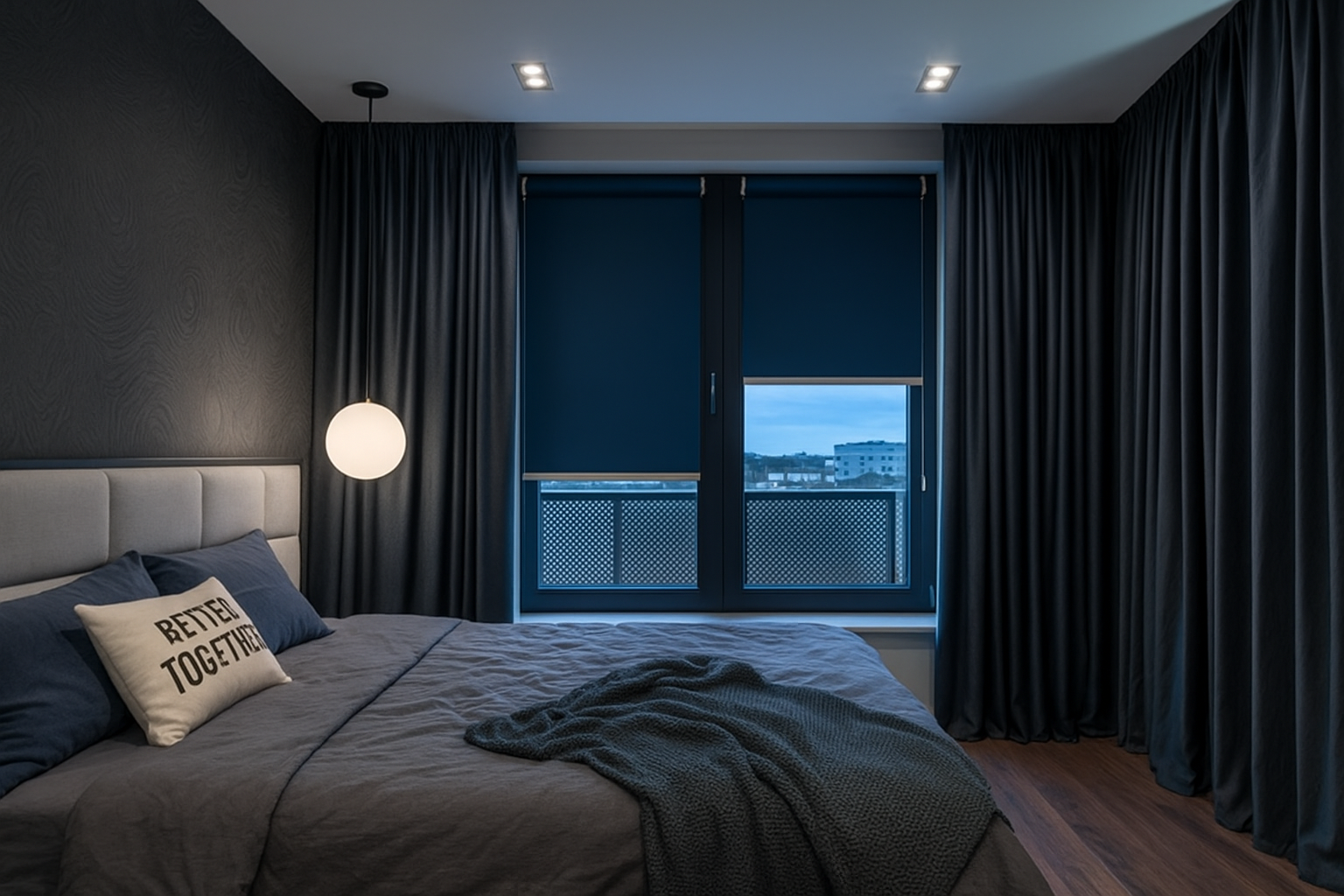
Noise pollution and inconsistent room temperature are silent sleep disruptors. They keep the brain on alert even when the body feels tired.
Certain window treatments help reduce these problems:
- Cellular or honeycomb shades trap air in layered pockets that insulate your windows.
- Heavy drapes absorb and soften sound from traffic or neighbors.
- Thermal curtains reduce heat transfer, keeping your bedroom cool in summer and warm in winter.
This combination creates a quiet, steady environment ideal for deep sleep.
How Window Treatments Influence Sleep Quality
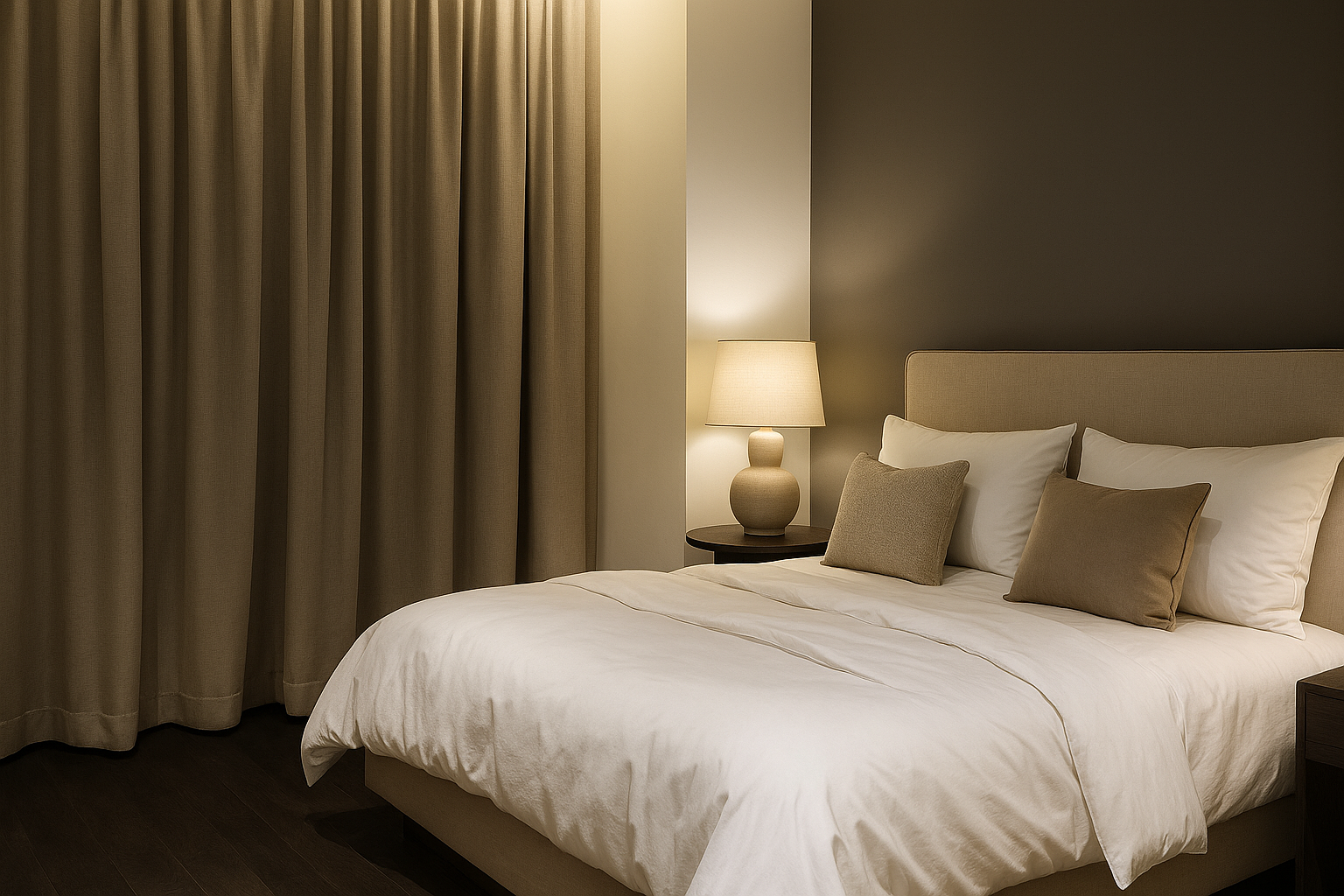
Window treatments do more than decorate. They shape how well you rest every night.
Blocking Unwanted Light
Streetlights, passing cars, and even a neighbor’s porch light interfere with sleep. When comparing Blackout Curtains vs. Blackout Blinds, both offer excellent light control—these treatments are the best defenses against unwanted brightness that disrupts your sleep.
These treatments:
- Eliminate early morning sunlight intrusion
- Block glare from electronic signs or traffic
- Prevent artificial light from disturbing melatonin levels
Bedrooms facing east or near busy streets benefit most from these solutions.
Controlling Noise and Insulation with Cellular Shades
Cellular shades, also called honeycomb shades, have an air-pocket design that reduces sound and improves insulation. The trapped air acts as a sound barrier and temperature regulator.
- They block low-frequency traffic noise
- They stabilize room temperature through insulation
- They add a clean, modern look suitable for any décor
This makes them perfect for homes in urban or high-traffic areas where constant sound and temperature swings are common.
Increasing Privacy and Reducing Distractions
Privacy is psychological comfort. When you know no one can see inside, your body relaxes.
Light-blocking blinds, shutters, and drapes not only block outside views but also shield your personal space. This sense of seclusion promotes better rest by removing visual distractions and creating a secure environment.
Smart Motorized Window Treatments for Sleep Hygiene
Smart and motorized shades offer control with precision. They align with your bedtime and wake-up routines automatically.
- Schedule them to close at night for complete darkness
- Set them to open slowly at sunrise to wake naturally
- Control them remotely for convenience
Motorized blackout curtains are ideal for shift workers or those who sleep during the day. This automation ensures consistency and supports a healthy circadian rhythm.
Layering Window Treatments for Maximum Effect
Layering combines style with function. Sheer curtains filter light during the day, while blackout drapes ensure total darkness at night.
Common pairings include:
- Roller shades behind decorative drapes
- Blinds layered with blackout curtains
- Sheer panels under thick blackout fabric
This layered approach offers flexible light control and insulation while enhancing the room’s visual appeal.
Best Window Treatments for Better Sleep
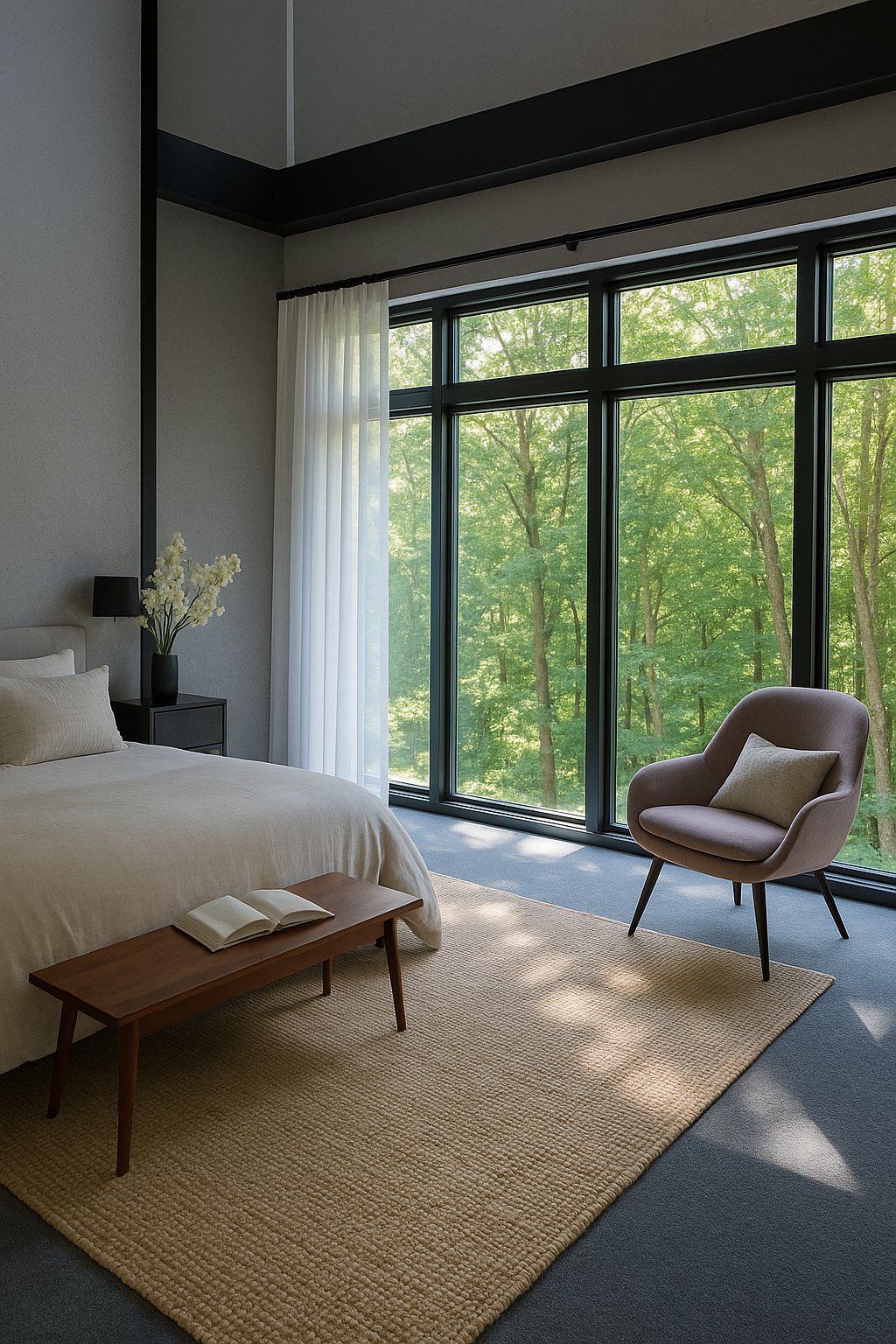
Blackout Curtains and Drapes
These are the gold standard for blocking light. They feature thick, opaque fabric that stops up to 99 percent of external light.
Pros:
- Best for shift workers or east-facing bedrooms
- Offer strong insulation
- Add elegant texture to the room
Cons:
- Can feel heavy in smaller spaces
- Require proper installation to minimize light gaps
Room-Darkening Blinds and Roller Shades
Room-darkening options block most, not all, light. They are excellent for people who prefer a slightly dim environment instead of full darkness.
Pros:
- Modern and minimal design
- Easy to operate and maintain
- Effective balance between light and privacy
Cons:
- Do not achieve full blackout if gaps are present
Cellular (Honeycomb) Shades
Known for insulation and noise reduction, these shades create a calm and comfortable room.
Pros:
- Energy-efficient
- Absorbs noise
- Soft modern look
Cons:
- Limited color options compared to fabric curtains
Smart Motorized Shades and Blinds
Perfect for convenience and routine control.
Pros:
- Automatic scheduling improves sleep hygiene
- Great for tall or hard-to-reach windows
- Can integrate with smart home systems
Cons:
- Requires power source or charging
- Higher upfront investment
Layered Systems (Sheers and Heavy Drapes)
Combining sheers with blackout drapes adds versatility and design depth.
Pros:
- Flexible light management
- Customizable aesthetics
- Strong privacy at night, brightness during day
Cons:
- Needs precise installation
- Slightly more cleaning effort
Choosing the Right Window Treatments for Your Bedroom
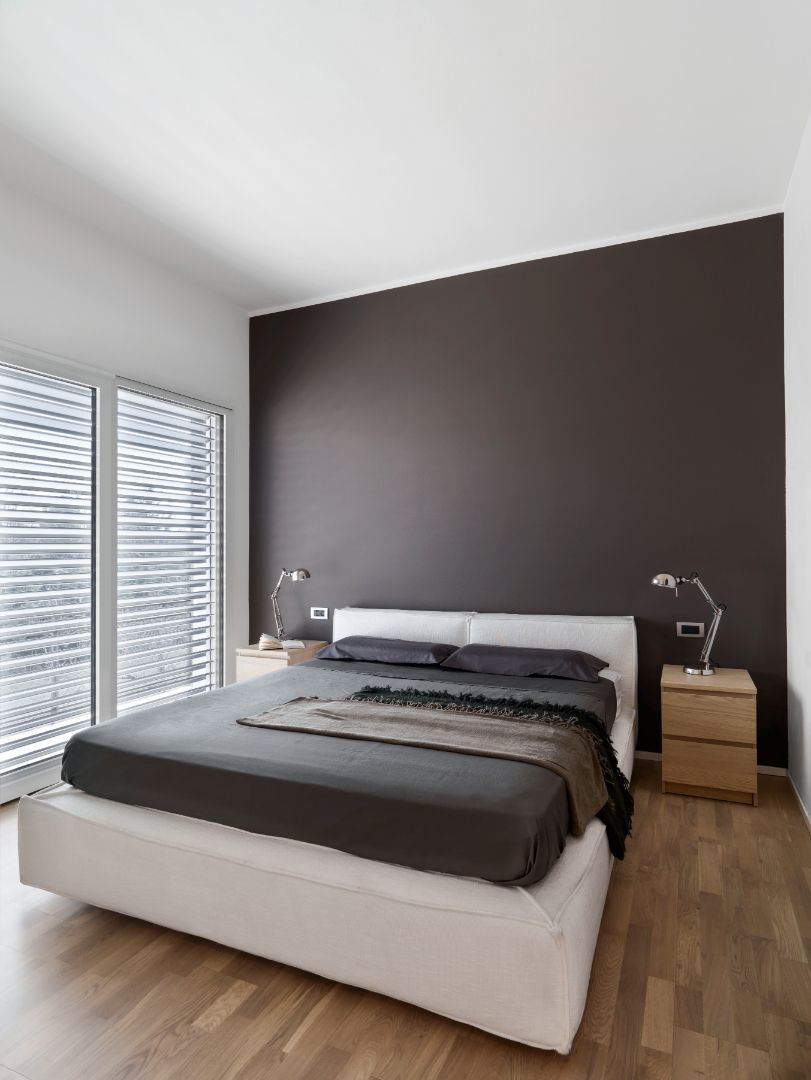
Every home faces different sleep challenges. To select the right solution, start with what disrupts your rest.
Assess Your Sleep Challenge
- Early sunlight? Choose blackout drapes.
- Street noise? Go for cellular shades.
- Privacy issues? Layer with opaque curtains.
Window Position and Mounting
Inside mounts leave small gaps that leak light. Outside mounts cover more surface and reduce light seepage.
Fabric and Material Considerations
Thicker fabrics block more light and provide better insulation. Choose fade-resistant materials if you live in bright or sunny areas.
Smart Features and Automation
Automated systems help maintain sleep hygiene by keeping your bedtime routine consistent.
Budget, Installation, and Maintenance
Higher-quality materials last longer. Clean regularly to remove dust buildup that affects appearance and performance.
Window Treatments for Bright or Sunny Climates Like Texas
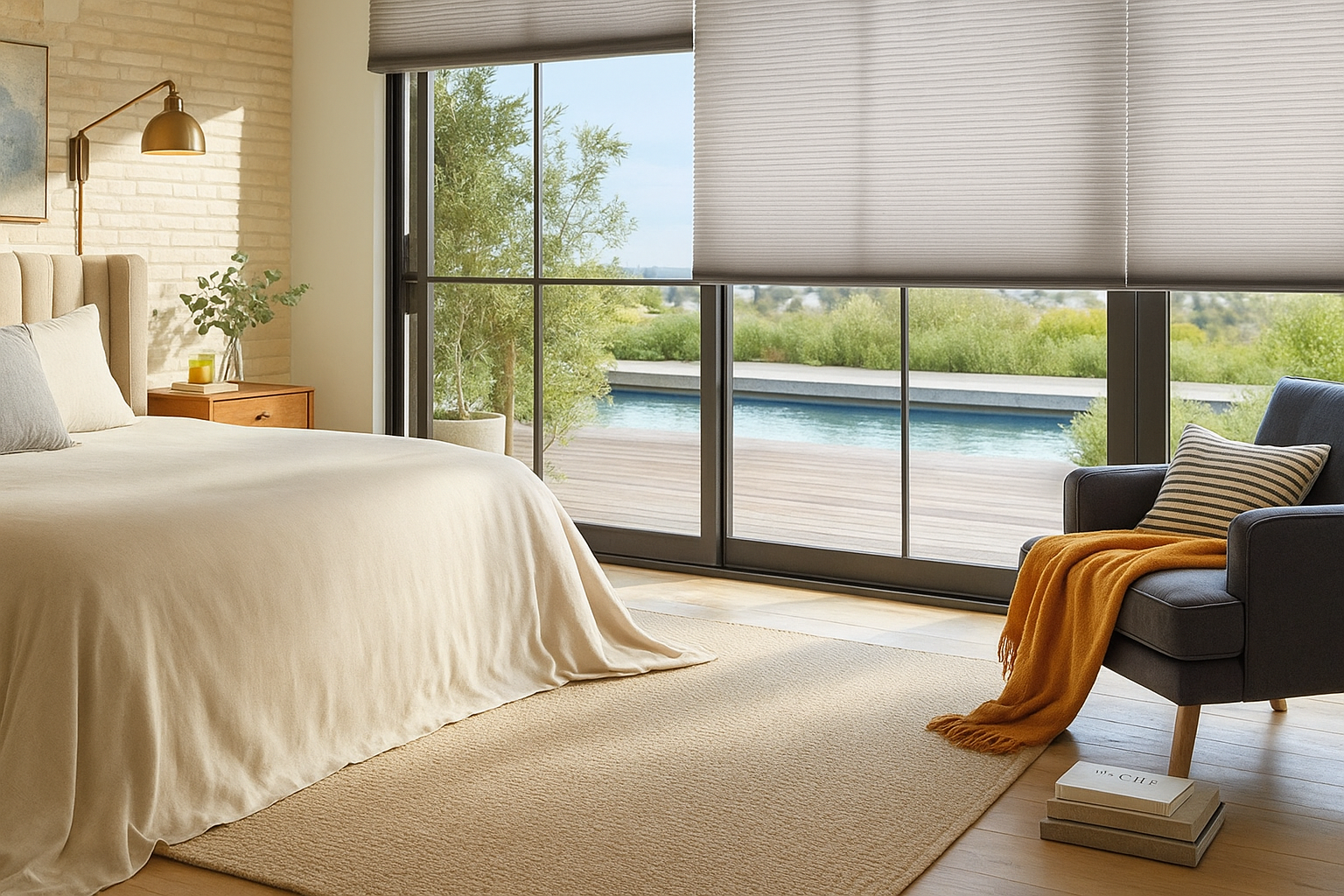
Texas homes face intense sunlight and heat. The right treatments reduce glare, control temperature, and prevent UV damage to furniture.
Recommended options:
- Blackout curtains with thermal lining for heat resistance
- Cellular shades for insulation during summer
- Layered treatments for versatile light control
These options lower cooling costs and improve sleep comfort, especially in rooms exposed to afternoon sun.
Love Is Blinds TX helps homeowners in Texas choose climate-appropriate materials that balance design with functionality.
Steps to Create a Sleep-Friendly Bedroom Using Window Treatments
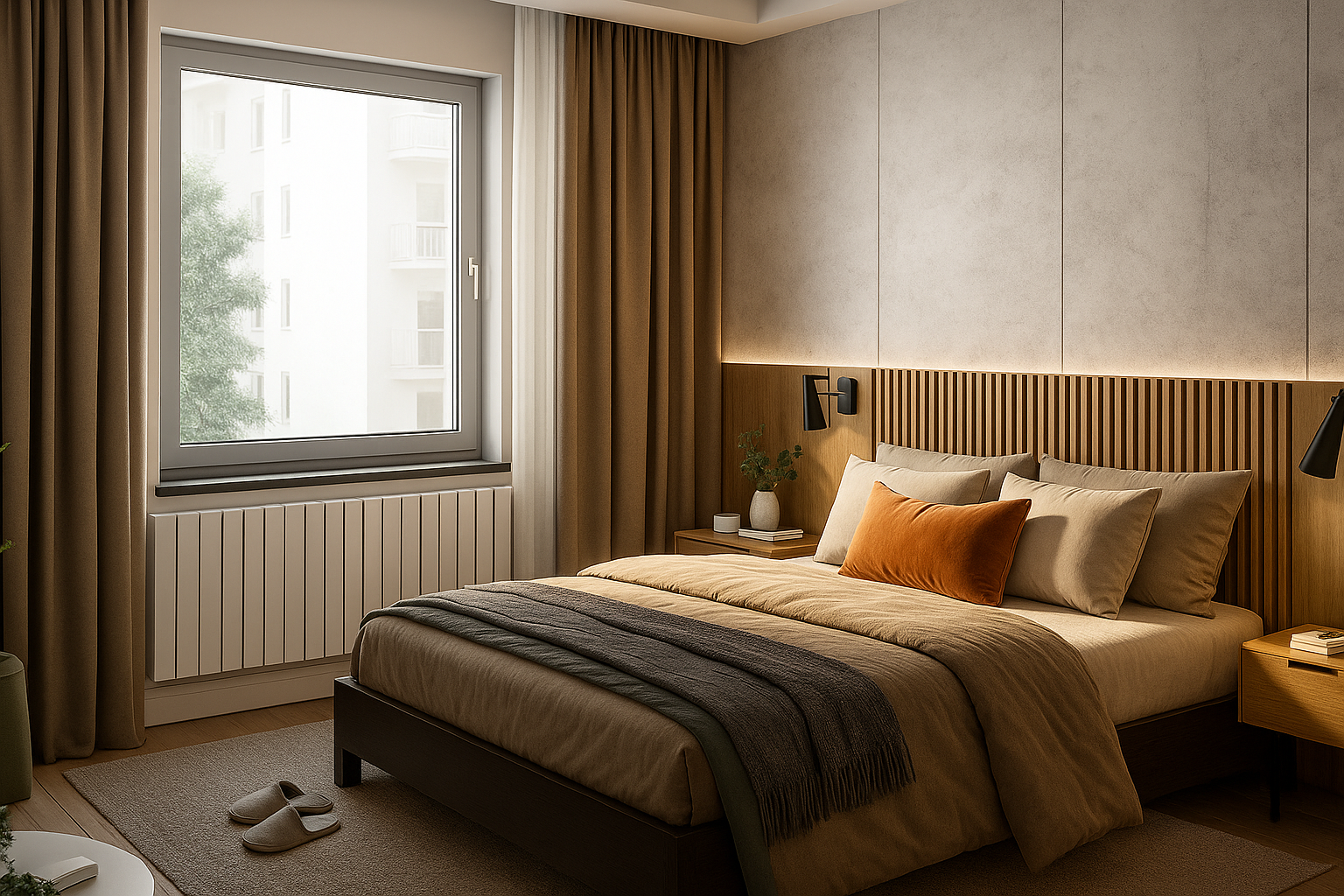
- Audit your room for light leaks, noise sources, and temperature issues.
- Select window treatments that solve your top concerns.
- Measure precisely to avoid light gaps during installation.
- Add automation for consistent light control.
- Maintain regularly to keep fabrics clean and effective.
- Combine with sleep hygiene habits such as lowering screen time and maintaining a cool room.
Frequently Asked Questions

